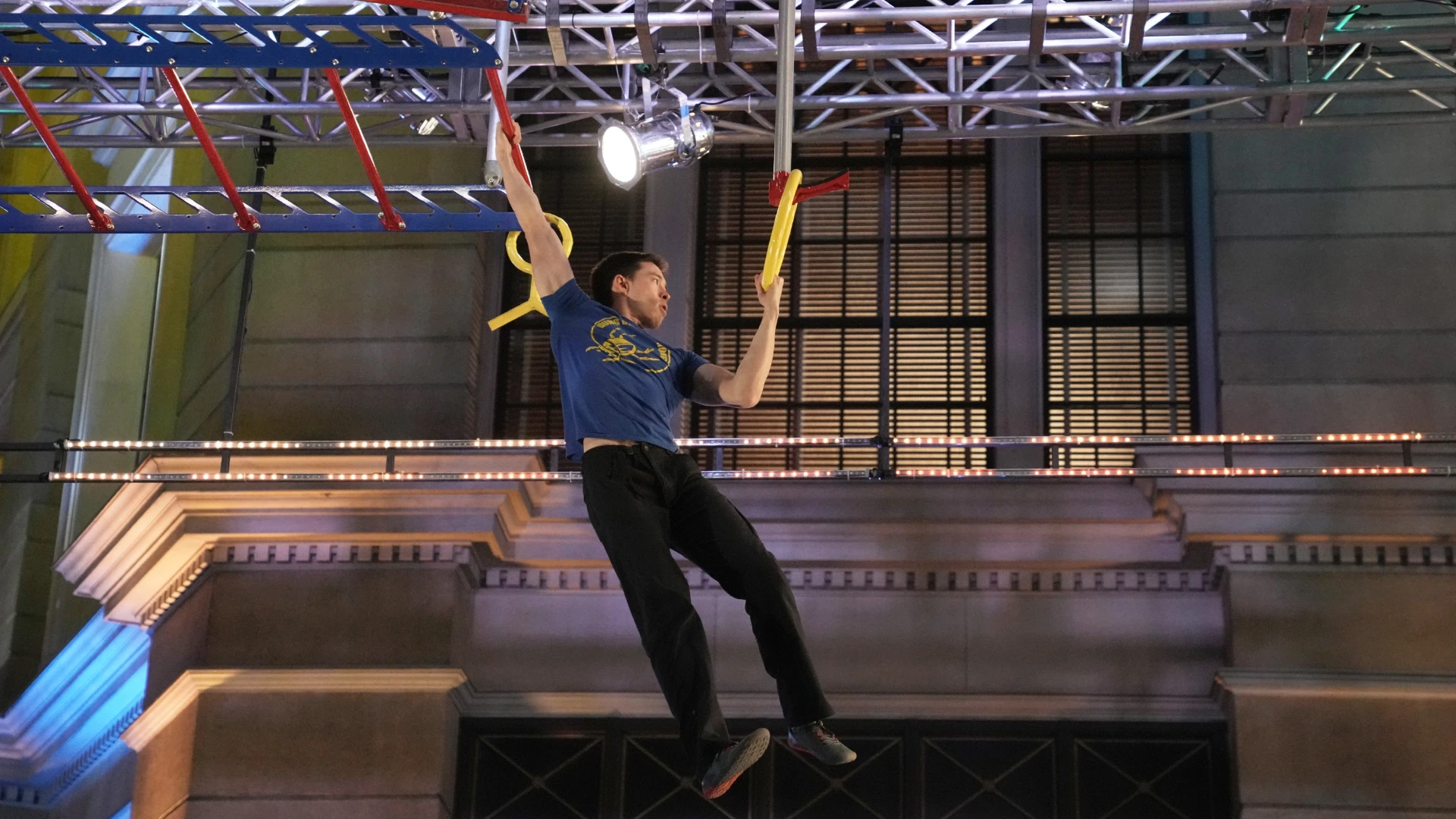
Courtesy of Eric Middleton
Editor's note: Watch his latest qualifier run here.
SAN DIEGO, Calif. — Eric Middleton’s journey to American Ninja Warrior (ANW) started long before he ran his first competitive obstacle course back in 2016.
Middleton, an IPM Advisor for the University of California Agriculture and Natural Resources (UCANR) in San Diego, was no stranger to having to jump and leap far as a child climbing on rocks outside in the field alongside his mother, who studied geology.
“I didn’t do any organized sports growing up, but I was looking at bugs, climbing on rocks and poking around at beetles,” Middleton said.

Middleton earned his bachelor’s degree in biology from the University of Utah before attending the University of Minnesota for his doctorate degree. Now an IPM advisor, Middleton’s applied research focuses on agricultural entomology.
Some pests Middleton studies are white flies, spider mites and the South American palm weevil, which is killing off the classic palm trees in southern California, he said.
“I always was interested in growing food and how food systems work, so it was a perfect marriage of these interests that I had and being able to see how insects interact with these foods,” Middleton said.
While completing his doctorate, Middleton was looking for a hobby outside of school. One day he decided to go to a gym that had some ANW obstacles to “see if he was any good at it.”
Once he discovered his talents, he decided to apply for the show in 2016 and qualified to compete in his first run. He’s competed every year since and has made it to several qualifier and semi-final competitions in the last eight years.
Middleton said there’s been people who have recognized him from the show with his “Dung Beetle Strong” slogan. He created this slogan to subtly get in some entomology knowledge that people could take in when watching the show.
“All of the other people would say my inspiration is athletes, and those weren’t mine,” he said. “My inspirations were insects, because if I could run as fast as a tiger beetle, jump as high as a flea or be as strong as a dung beetle, which is pound for pound the strongest animal that’s known to science, then all of this would be easy.”

In his first year, Middleton had the idea to have the ANW hosts, Matt Iseman and Akbar Gbajabiamila, eat a cooked insect at the end of each course. Up for the challenge, Middleton brought fried tarantulas, scorpions and most recently, the South American palm weevil, for the two to eat.
“I had one in my pocket in case I finished the course to eat with them,” he said. “It was my first time trying it and it was actually really tasty. I had to hard boil them and freeze them months ahead of time and cook them on set.”
While Middleton’s had multiple successful runs on ANW, he said it’s very difficult to sustain that winning streak with not a ton of practice in between runs and not having a gym to practice in on his free time.
“A lot of people asked what cross-training I did beforehand, and it was ‘I played the floor is lava,’ and that was a real answer to that question,” he said. “I have a course set up in my backyard to practice whenever I can to stay in shape.”
There’s zero room for error in a very high stress environment, Middleton said. He said you show up to set around 4:00 p.m., and from there sit in a room with other contestants, sometimes for hours on end in a high state of nerves, before having to go perform under the lights and in front of cameras with little warmup.
Filmed at nighttime, a run can take place anytime between 9:00 p.m. and 5:00 a.m., Middleton said.
“My fourth year, I fell on my third obstacle and qualifying was out immediately,” he said. “There are ups and downs, but I’ve been pretty consistent overall despite the rising tide of teenagers who are very good at this sport.”
Head-to-head semifinal races will air after the summer Olympics, and next season casting will be filmed this fall, Middleton said.
Middleton’s hope from this experience is to make people aware of how insects can interact in everyday lives.
“People [tell] me all the time that ‘I didn’t really know you can be an entomologist as a job,’ and there’s an important need for it, whether it’s in conservation or the pest control industry,” he said.
Latest from Pest Control Technology
- Donny Oswalt Shares What Makes Termites a 'Tricky' Pest
- Study Finds Fecal Tests Can Reveal Active Termite Infestations
- Peachtree Pest Control Partners with Local Nonprofits to Fight Food Insecurity
- Allergy Technologies, PHA Expand ATAHC Complete Program to Protect 8,500 Homes
- Housecall Pro Hosts '25 Winter Summit Featuring Mike Rowe
- Advanced Education
- Spotted Lanternflies, BMSBs Most Problematic Invasive Pests, Poll Finds
- Ecolab Acquires Guardian Pest Solutions





